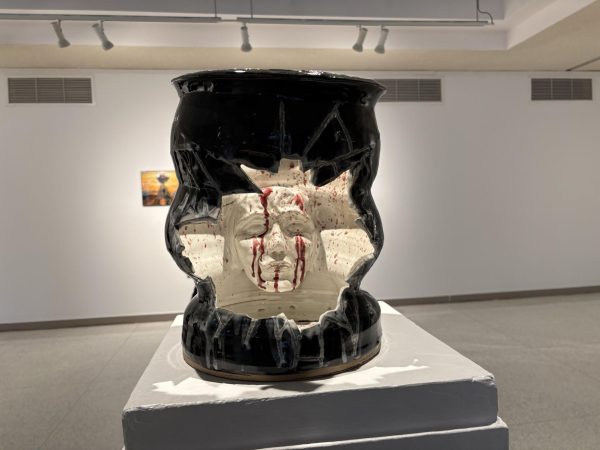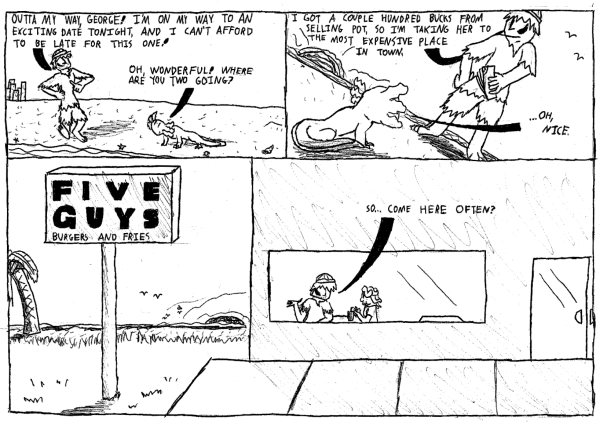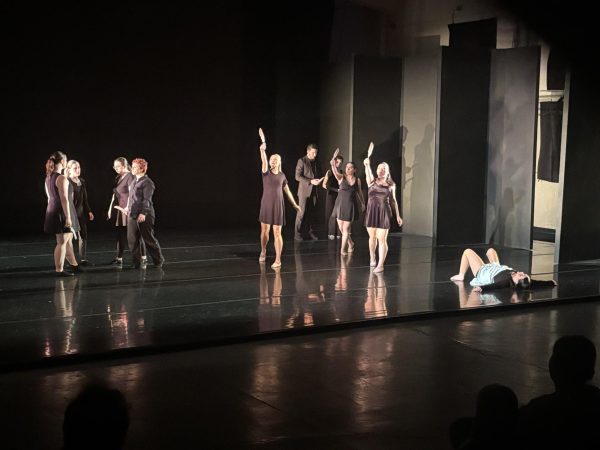NPR journalist premiers work from South Sudan
The Vukovich Center for Communication Arts was filled with students, faculty and Meadville community members on Friday, March 4 at 7:30 p.m. to see NPR photographer and video editor David Gilkey. As part of the Allegheny journalism conference, David Gilkey told his story “No Quarter: Fleeing War, Seeking Shelter” after just returning from South Sudan.
Gilkey showed photos and videos from the experiences he has had covering refugees and from his latest trip to South Sudan.
“For me as a journalist, why people move is a very important story to tell,” said Gilkey.
He addressed the harsh conditions that people have to live with in South Sudan and the civil war violence that made people want to leave.
“One of the big things I want to bring up is that a lot of people move around in their own country and never go back to where they came from,” said Gilkey.
While in South Sudan, Gilkey focused on two different stories about the State of Affairs and Doctors Without Borders.
Gilkey said that most of the refugees at the camp he observed are internally displaced children and many of them suffered from malaria or other diseases that doctors deal with on a regular basis. Gilkey said Doctors Without Borders is working to build a hospital tent to care for sick refugees.
Justin Stascak, ’17, attended Gilkey’s talk and was impacted by his work.
“I really enjoyed hearing about all of his stories and his pictures really showed the terrible conditions these kids were suffering from,” said Stascak.
Gilkey said the conditions in South Sudan are hard to live with and that is why many people are working hard to get out. He said the effects from the civil war still play a big role in the suffering of the refugees.
“It is remarkable the resiliency of these people under these conditions to continue living,” said Gilkey.
Stascak said he was shocked by the living situation of people in Sudan and in other third world countries. He said it puts things into perspective.
“Life there is definitely a lot tougher than I previously expected and a lot of people are looking for a better life, but can’t seem to get out,” said Stascak.
Michael Keeley, professor of communication arts with a focus on film and visual productions, was also interested in what Gilkey had to say. Keeley said it was intriguing to hear about times when Gilkey faced real challenges, and it was inspiring to look at his work.
“I work in moving images and I am interested in documentary so it was great to hear about his experiences,” said Keeley.
Gilkey ran into his own challenges while he was in South Sudan. Before getting started on the stories that he covered, he had to travel and take time to get comfortable and build a relationship with the refugees.
“One challenge of doing an assignment like this for me is the travel because this particular trip took five total days just to get started on the assignment,” said Gilkey. “The more time you spend with the subjects before you need to photograph or interview them the more candid it can be.”
Although the time and travel that goes into an assignment like this is taxing on Gilkey, there are other obstacles of his job that continue to challenge Gilkey mentally and physically.
“One challenge is to keep yourself in a position where you aren’t going to get shot,” said Gilkey. “I have encountered a situation in which I thought it was better to be helpful in saving someone’s life rather than take the picture.”
Stascak said he was impacted by the hard things that Gilkey has had to see and go through while abroad.
“He mentioned being human a lot, and I liked this point because sometimes there is a need to put down the camera and help someone,” said Stascak.
Keeley admired the fact that Gilkey has been through so much in order to capture the best content possible in his line of work.
“The situations when he is in places where there is war and natural disaster made me really appreciate the work that he does,” said Keeley.
Gilkey has experienced many hardships while doing his job as a photographer but at the end of the day he said that all of the challenges are what drive his work.
“We all have a way of getting over war and conflict, but for me it is sending and filing the pictures,” said Gilkey.
To Gilkey a picture is worth 1,000 words.
“I think at the end of the day I feel extremely lucky to have the job that I have because as a photographer and a journalist it is a privilege to be able to give back,” said Gilkey.







